-
 Bitcoin
Bitcoin $118000
-0.23% -
 Ethereum
Ethereum $3651
1.66% -
 XRP
XRP $3.423
-1.58% -
 Tether USDt
Tether USDt $1.001
-0.02% -
 BNB
BNB $742.8
0.69% -
 Solana
Solana $177.8
0.30% -
 USDC
USDC $0.9999
0.01% -
 Dogecoin
Dogecoin $0.2539
0.03% -
 TRON
TRON $0.3199
-1.74% -
 Cardano
Cardano $0.8382
0.59% -
 Hyperliquid
Hyperliquid $44.83
0.05% -
 Stellar
Stellar $0.4602
-1.49% -
 Sui
Sui $3.850
0.58% -
 Chainlink
Chainlink $18.62
2.56% -
 Hedera
Hedera $0.2681
0.97% -
 Avalanche
Avalanche $24.63
3.07% -
 Bitcoin Cash
Bitcoin Cash $522.5
0.96% -
 Shiba Inu
Shiba Inu $0.00001507
-0.80% -
 Litecoin
Litecoin $113.6
9.75% -
 UNUS SED LEO
UNUS SED LEO $8.994
0.24% -
 Toncoin
Toncoin $3.197
-0.43% -
 Polkadot
Polkadot $4.361
1.13% -
 Uniswap
Uniswap $10.45
1.41% -
 Monero
Monero $327.5
0.65% -
 Ethena USDe
Ethena USDe $1.001
-0.03% -
 Bitget Token
Bitget Token $4.992
-1.12% -
 Pepe
Pepe $0.00001355
0.67% -
 Dai
Dai $1.000
0.01% -
 Aave
Aave $322.6
0.15% -
 Bittensor
Bittensor $415.5
0.88%
How long do crypto transfers take
Cryptocurrency transfer times vary based on network congestion, fees, blockchain type, and exchange or wallet processing delays.
Jul 13, 2025 at 01:21 pm
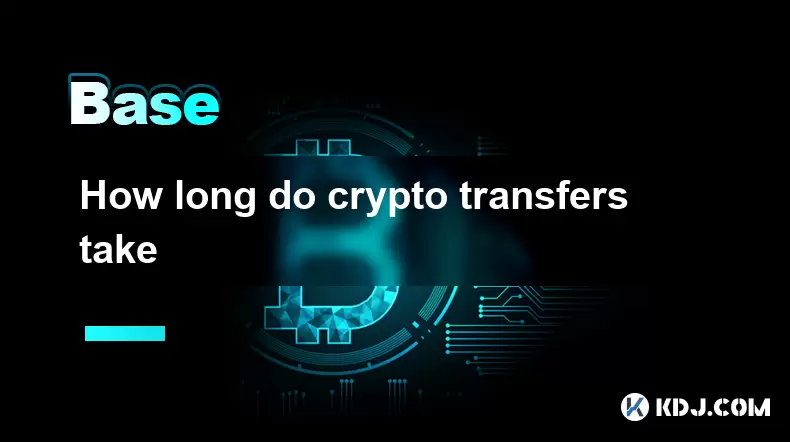
Understanding the Factors Influencing Crypto Transfer Times
The time it takes for a cryptocurrency transfer to complete depends on several variables. Blockchain network congestion is one of the primary factors that affect transaction speed. When a network like Bitcoin or Ethereum experiences high traffic, transactions may be delayed as miners or validators prioritize higher-fee transactions. This means users might have to wait longer if they set low fees during busy periods.
Another critical aspect is the confirmation requirements of the receiving platform or wallet. Most exchanges and wallets require multiple confirmations before considering a transaction final. For example, Bitcoin typically requires at least three confirmations, which can take around 30 minutes under normal conditions. However, in cases of network delays or low fees, this could extend to hours.
Additionally, the type of blockchain being used plays a significant role. Faster networks like Solana or Ripple (XRP) are designed for near-instant transfers, while older blockchains like Bitcoin or Litecoin may take longer due to their inherent design and consensus mechanisms.
Transaction Fees and Their Impact on Transfer Speed
Transaction fees directly influence how quickly a crypto transfer is processed. Users who pay higher fees get priority from miners or validators, resulting in faster confirmations. Conversely, setting low fees can lead to delays, especially when the network is busy.
Most wallets allow users to manually adjust the fee before sending funds. Choosing an appropriate fee level is crucial, particularly for time-sensitive transfers. Wallets often provide options such as "slow," "normal," and "fast" to help users make informed decisions based on current network conditions.
In some cases, users might not realize that low fees can cause transactions to remain unconfirmed for extended periods. If a transaction remains unconfirmed, it might eventually drop from the mempool (the pool of unconfirmed transactions), requiring resubmission with a higher fee.
Differences Between Blockchains and Their Transfer Times
Not all cryptocurrencies operate on the same type of blockchain, and this affects transfer speeds significantly. Bitcoin transactions generally take between 10 minutes to over an hour, depending on confirmation requirements and network load. Ethereum, using a similar proof-of-work mechanism (though now transitioning to proof-of-stake), usually confirms transactions faster, often within a few minutes.
On the other hand, newer blockchains like Solana, Cardano, and XRP Ledger are built for speed, offering sub-minute transaction times even during peak usage. These networks use different consensus algorithms—such as Proof of History for Solana or Ripple Protocol Consensus Algorithm for XRP—that enable faster validations without compromising security.
Stablecoins like USDT or USDC also vary depending on the underlying blockchain. For instance, USDT on Tron (TRC20) is typically faster and cheaper than USDT on Ethereum (ERC20), which may face congestion issues during high demand.
Exchange Withdrawal and Deposit Processing Times
Even if a blockchain processes transactions quickly, exchange processing times can add additional delays. Many platforms implement internal verification steps before allowing withdrawals or deposits to finalize. This is primarily for security reasons, to prevent fraud or unauthorized access.
When withdrawing from an exchange, users must wait for the blockchain confirmation, but some exchanges credit the withdrawal instantly after broadcast, assuming the transaction will eventually confirm. Others wait until the required number of confirmations is reached before marking the withdrawal as complete.
Similarly, deposit processing can vary. Some exchanges credit incoming deposits immediately upon detection on the blockchain, while others wait for multiple confirmations. It’s essential to check the specific policies of the exchange involved, as this can significantly impact the perceived speed of a transfer.
Wallet Compatibility and Transaction Delays
Using incompatible wallets or incorrect addresses can cause transfers to fail or become stuck. Sending tokens to a wallet that doesn’t support them may result in permanent loss unless the recipient address is recoverable through technical support.
Also, some wallets introduce delays due to additional layers of verification or multi-signature requirements. Hardware wallets, for instance, require physical interaction before signing a transaction, which can slow down the process slightly compared to software wallets.
Furthermore, network upgrades or forks can temporarily disrupt transaction flows. During such events, nodes might not recognize certain transaction formats, leading to unexpected delays or rejections until full synchronization is achieved.
Frequently Asked Questions
What happens if my crypto transfer doesn’t go through?
If your transfer doesn’t appear in the destination wallet, first check the transaction hash on a blockchain explorer. If it shows as unconfirmed, it may still be pending. If it's confirmed but not showing up, ensure the receiving wallet supports the token and double-check the address used.
Can I cancel a crypto transaction once sent?
No, blockchain transactions are irreversible once broadcasted. You cannot cancel or reverse a transaction unless the recipient agrees to send the funds back.
Why did my transaction take longer than usual?
Possible reasons include network congestion, low transaction fees, or exchange processing delays. Always verify the transaction status via a blockchain explorer to determine where the delay occurred.
Does the amount being transferred affect speed?
No, transfer speed is not affected by the amount sent. It depends solely on network conditions, fees, and confirmation requirements.
Disclaimer:info@kdj.com
The information provided is not trading advice. kdj.com does not assume any responsibility for any investments made based on the information provided in this article. Cryptocurrencies are highly volatile and it is highly recommended that you invest with caution after thorough research!
If you believe that the content used on this website infringes your copyright, please contact us immediately (info@kdj.com) and we will delete it promptly.
- Tea Rooms, Black Dogs, and Ghosts: A Spirited Brew in the UK
- 2025-07-20 12:30:12
- MogCoin and the Memecoin Mania: Price Gains and Cultural Shifts
- 2025-07-20 12:30:12
- Avalanche (AVAX) Eyes $35: Breakout or Bust?
- 2025-07-20 12:50:12
- XRP, Ozak AI, and the AI Token Revolution: What's the Buzz?
- 2025-07-20 12:50:12
- Bitcoin Mining Goes Mobile: Cloud Contracts & Daily Rewards in Your Pocket!
- 2025-07-20 12:55:12
- XRP, ATH, and Altcoins 2025: Is XRP Leading the Charge?
- 2025-07-20 13:00:13
Related knowledge
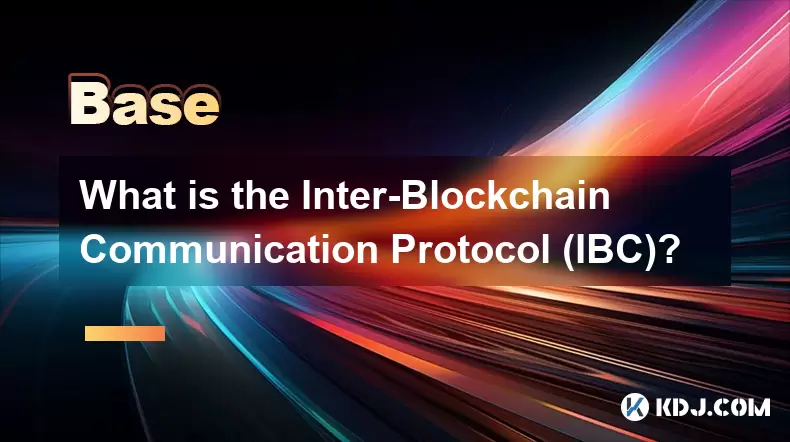
What is the Inter-Blockchain Communication Protocol (IBC)?
Jul 19,2025 at 10:43am
Understanding the Inter-Blockchain Communication Protocol (IBC)The Inter-Blockchain Communication Protocol (IBC) is a cross-chain communication protoc...
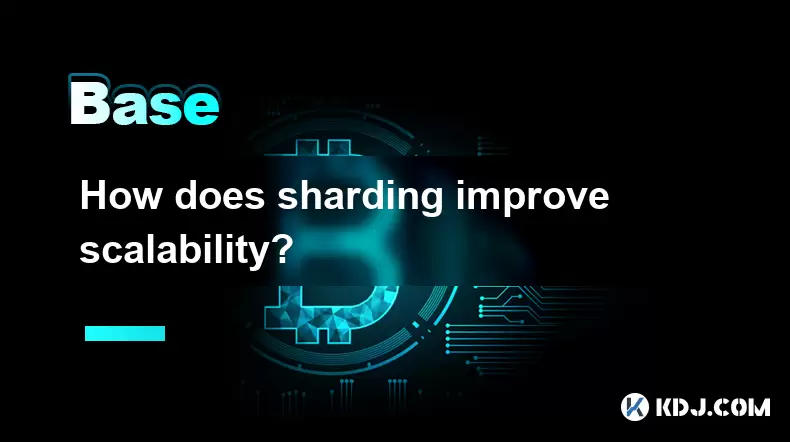
How does sharding improve scalability?
Jul 20,2025 at 01:21am
Understanding Sharding in BlockchainSharding is a database partitioning technique that is increasingly being adopted in blockchain technology to enhan...
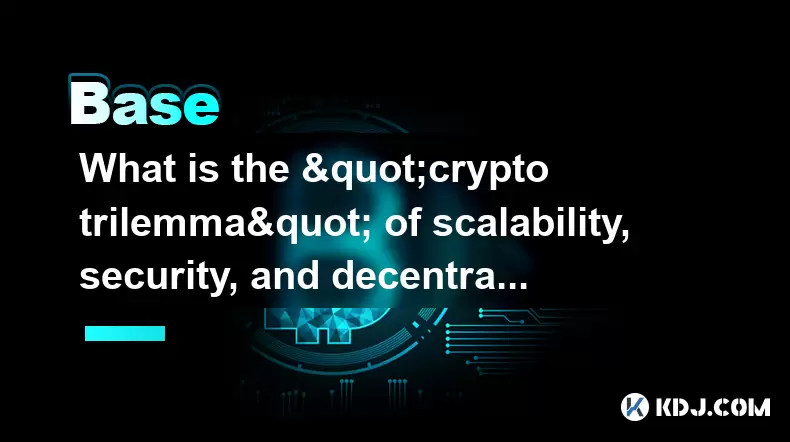
What is the "crypto trilemma" of scalability, security, and decentralization?
Jul 19,2025 at 06:28pm
Understanding the Concept of the Crypto TrilemmaThe crypto trilemma refers to the challenge of simultaneously achieving scalability, security, and dec...
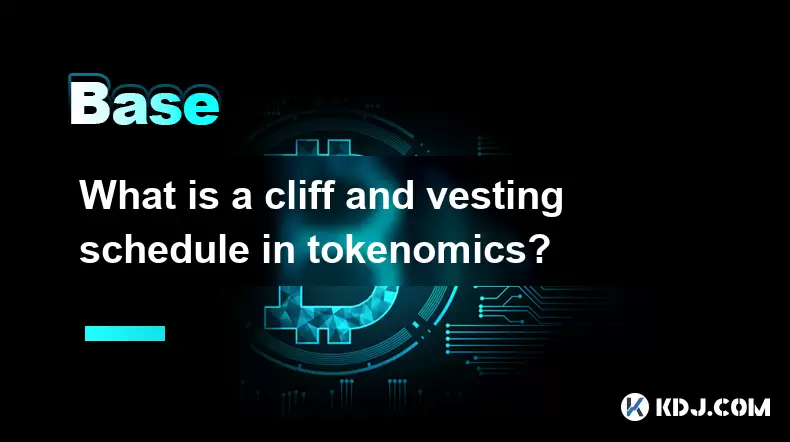
What is a cliff and vesting schedule in tokenomics?
Jul 20,2025 at 10:28am
What Does a Cliff Mean in Tokenomics?In tokenomics, a cliff refers to a specific period during which token holders are not allowed to access or transf...
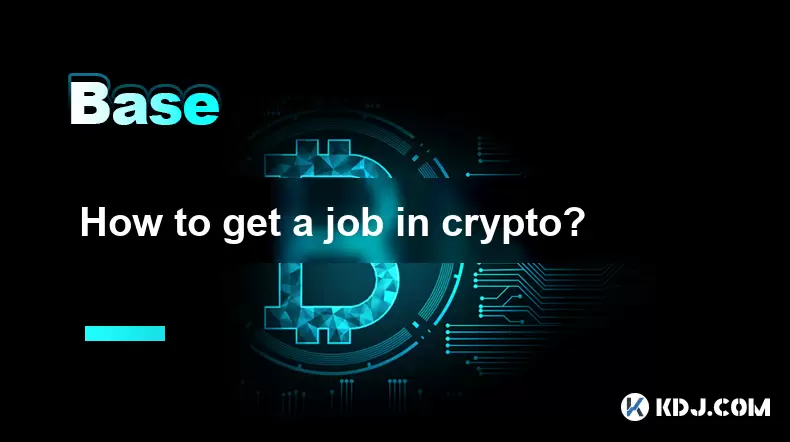
How to get a job in crypto?
Jul 20,2025 at 08:14am
Understanding the Crypto Industry LandscapeThe cryptocurrency industry is a rapidly evolving space that includes blockchain technology, decentralized ...
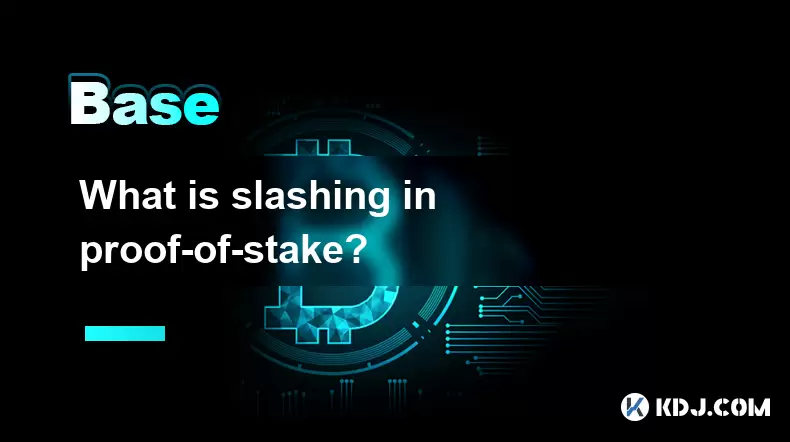
What is slashing in proof-of-stake?
Jul 20,2025 at 06:07am
Understanding Slashing in Proof-of-StakeIn a Proof-of-Stake (PoS) blockchain network, slashing refers to the penalty mechanism used to deter validator...

What is the Inter-Blockchain Communication Protocol (IBC)?
Jul 19,2025 at 10:43am
Understanding the Inter-Blockchain Communication Protocol (IBC)The Inter-Blockchain Communication Protocol (IBC) is a cross-chain communication protoc...

How does sharding improve scalability?
Jul 20,2025 at 01:21am
Understanding Sharding in BlockchainSharding is a database partitioning technique that is increasingly being adopted in blockchain technology to enhan...

What is the "crypto trilemma" of scalability, security, and decentralization?
Jul 19,2025 at 06:28pm
Understanding the Concept of the Crypto TrilemmaThe crypto trilemma refers to the challenge of simultaneously achieving scalability, security, and dec...

What is a cliff and vesting schedule in tokenomics?
Jul 20,2025 at 10:28am
What Does a Cliff Mean in Tokenomics?In tokenomics, a cliff refers to a specific period during which token holders are not allowed to access or transf...

How to get a job in crypto?
Jul 20,2025 at 08:14am
Understanding the Crypto Industry LandscapeThe cryptocurrency industry is a rapidly evolving space that includes blockchain technology, decentralized ...

What is slashing in proof-of-stake?
Jul 20,2025 at 06:07am
Understanding Slashing in Proof-of-StakeIn a Proof-of-Stake (PoS) blockchain network, slashing refers to the penalty mechanism used to deter validator...
See all articles

























































































